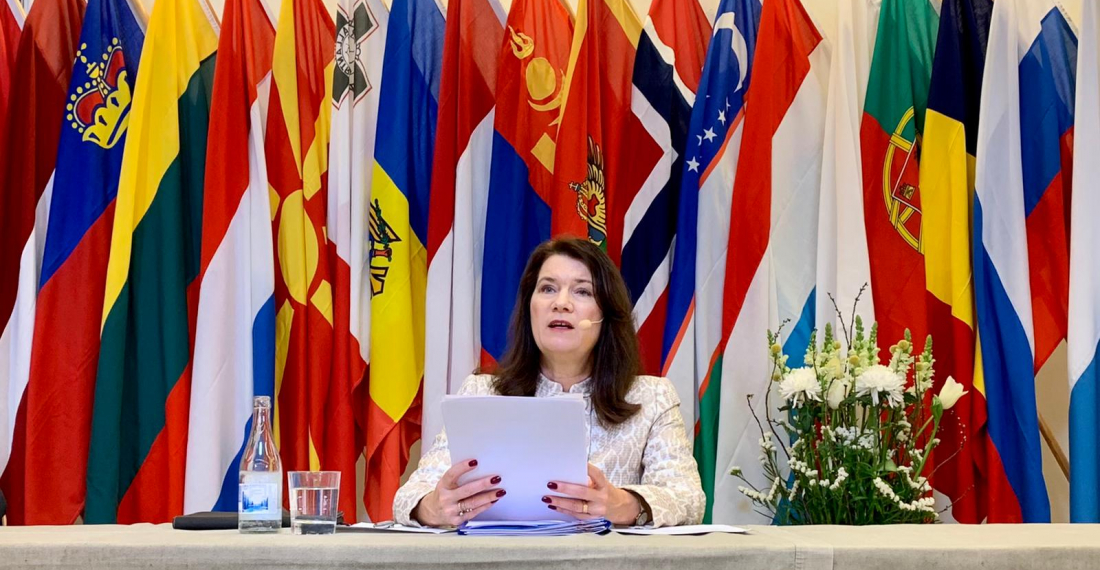Ann Linde, the Swedish foreign minister, has today (14 January) outlined Sweden’s priorities during its chairpersonship of the Organization for Security and Co-operation in Europe (OSCE) this year. Speaking virtually to the OSCE’s Permanent Council, Linde – who is also the OSCE’s Chairperson-in-Office during Sweden’s chairpersonship – said that her country will do its part to ensure that the OSCE can make a real difference on the ground and defend the principles on which the organisation was founded.
“In a situation where multilateral co-operation and international law are increasingly being challenged, and our agreements and instruments to strengthen security are being questioned, we need to remind ourselves why we designed them in the first place,” said Linde. “Sweden is convinced that multilateral co-operation is the best way to address our common challenges. Sweden has shown that we are ready to shoulder our responsibility for the multilateral system.”
The OSCE was established on the principles of the Helsinki Final Act (HFA), signed in 1975 by 35 countries in the northern hemisphere – from across Europe, North America and what was then the Soviet Union. The HFA is considered to be the first time that these countries acknowledged the importance of a holistic approach to security, that included respect for human rights – amongst other things – as an indivisible principle of security. In her statement today, Linde re-emphasised that within these shared principles of the OSCE, “the link between security and respect for human rights, democracy and the rule of law is crystal clear”.
“By holding each other accountable, we make sure that our commitments remain relevant. By honouring our commitments, we make sure that our region is safe. This is where the unique value of our organisation lies”, she added.
Linde also emphasised that conflict resolution efforts in Europe’s neighbourhood are a high priority, noting the ongoing conflicts and crises in and around Nagorno-Karabakh, Ukraine, Moldova, Georgia and Belarus. She also highlighted the importance of women’s empowerment for comprehensive security – something she confirmed would be another focus of the Swedish chairpersonship.
She stressed that the OSCE “is only as effective as we, the participating States, allow it to be”, urging constructive engagement on the OSCE Unified Budget. She emphasised that Sweden, in its position as chair, stands “ready to do [its] part in leading negotiations”.
The full programme of Sweden's 2021 chairpersonship of the OSCE can be found here.
Last year, the OSCE found itself in crisis, without leadership for nearly half a year, after its member states failed to come to consensus on extending the mandates of its four main leadership positions. In December the host of commonspace.eu’s Global Europe Unpacked podcast, William Murray, spoke to Dr Walter Kemp – who has held a number of senior positions in the OSCE – about, amongst other things, Sweden's chairmanship, the OSCE 2020 leadership crisis, the organisation’s principles, and what can be done to ensure that it remains relevent going forward. You can listen to the episode here as well as on Apple Podcasts, Spotify, and wherever else you get your podcasts.







